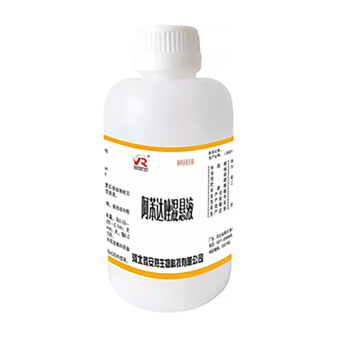- Afrikaans
- Albanian
- Amharic
- Arabic
- Armenian
- Azerbaijani
- Basque
- Belarusian
- Bengali
- Bosnian
- Bulgarian
- Catalan
- Cebuano
- Corsican
- Croatian
- Czech
- Danish
- Dutch
- English
- Esperanto
- Estonian
- Finnish
- French
- Frisian
- Galician
- Georgian
- German
- Greek
- Gujarati
- Haitian Creole
- hausa
- hawaiian
- Hebrew
- Hindi
- Miao
- Hungarian
- Icelandic
- igbo
- Indonesian
- irish
- Italian
- Japanese
- Javanese
- Kannada
- kazakh
- Khmer
- Rwandese
- Korean
- Kurdish
- Kyrgyz
- Lao
- Latin
- Latvian
- Lithuanian
- Luxembourgish
- Macedonian
- Malgashi
- Malay
- Malayalam
- Maltese
- Maori
- Marathi
- Mongolian
- Myanmar
- Nepali
- Norwegian
- Norwegian
- Occitan
- Pashto
- Persian
- Polish
- Portuguese
- Punjabi
- Romanian
- Russian
- Samoan
- Scottish Gaelic
- Serbian
- Sesotho
- Shona
- Sindhi
- Sinhala
- Slovak
- Slovenian
- Somali
- Spanish
- Sundanese
- Swahili
- Swedish
- Tagalog
- Tajik
- Tamil
- Tatar
- Telugu
- Thai
- Turkish
- Turkmen
- Ukrainian
- Urdu
- Uighur
- Uzbek
- Vietnamese
- Welsh
- Bantu
- Yiddish
- Yoruba
- Zulu
Dec . 12, 2024 11:06 Back to list
colistin sulphate
Colistin Sulphate An Antibacterial Agent in the Modern Era
Colistin sulphate, a polypeptide antibiotic, has emerged as a critical tool in the fight against multidrug-resistant bacterial infections. Originally isolated from the bacterium *Bacillus polymyxa*, colistin is primarily effective against Gram-negative bacteria, particularly those exhibiting resistance to conventional antibiotics. The resurgence of colistin in clinical settings underscores its significance as a last-resort treatment option, particularly in the face of increasing antibiotic resistance.
Colistin Sulphate An Antibacterial Agent in the Modern Era
Colistin functions by disrupting the bacterial cell membrane, leading to cell death. This mechanism of action is particularly effective against Gram-negative bacteria, which have a unique outer membrane structure that is susceptible to colistin. The drug is typically administered in its sulphate form, which aids in its absorption and bioavailability when given intravenously. However, due to its nephrotoxic side effects, careful monitoring is required during treatment, especially in patients with pre-existing kidney conditions.
colistin sulphate

In recent years, there have been growing concerns regarding the emergence of colistin-resistant strains. The mcr-1 gene, which confers resistance to colistin, has been identified in various bacterial pathogens worldwide. The detection of this gene raises significant public health concerns, as it could render colistin and similar antibiotics ineffective. This phenomenon highlights the urgent need for prudent antibiotic stewardship and the development of novel antibacterial agents.
Colistin's resurgence has also sparked interest in its application beyond treating infections. Recent studies have explored its role in the management of certain gastrointestinal conditions and its potential utility as an adjunct therapy in cancer treatment. These investigations aim to leverage colistin's antimicrobial properties in ways that extend beyond traditional antibacterial usage.
Furthermore, the agricultural use of colistin in livestock has been a topic of considerable debate. Colistin is often used in feed to promote growth and prevent infections in animals. However, this practice has been linked to the selection of resistant bacteria in the food chain, which can transfer to humans, exacerbating the problem of antibiotic resistance. Various countries are now implementing strict regulations regarding the use of colistin in agriculture to mitigate its impact on public health.
In conclusion, colistin sulphate remains a pivotal agent in the fight against multidrug-resistant infections. While it serves as a crucial option for treating severe infections caused by resistant bacteria, the emergence of colistin resistance poses significant challenges. Awareness and education about the responsible use of antibiotics, combined with continued research and monitoring, are essential to preserve the efficacy of colistin and ensure its availability for future generations. The ongoing battle against antibiotic resistance requires a multifaceted approach, focusing not only on treatment but also on prevention and responsible use in healthcare and agriculture. As the landscape of bacterial resistance evolves, colistin serves as a reminder of the delicate balance between medical innovation and the potential consequences of our choices.
-
Guide to Oxytetracycline Injection
NewsMar.27,2025
-
Guide to Colistin Sulphate
NewsMar.27,2025
-
Gentamicin Sulfate: Uses, Price, And Key Information
NewsMar.27,2025
-
Enrofloxacin Injection: Uses, Price, And Supplier Information
NewsMar.27,2025
-
Dexamethasone Sodium Phosphate Injection: Uses, Price, And Key Information
NewsMar.27,2025
-
Albendazole Tablet: Uses, Dosage, Cost, And Key Information
NewsMar.27,2025













